What is “humane education” and how can it save the world?
01 September 2015
Animal rights luminary Zoe Weil writes exclusively for Animals Asia on how we can learn to have a more healthy relationship with the world around us for the benefit of all living beings and a brighter tomorrow.
We face many problems in the world: climate change, habitat destruction, species extinction, war, poverty, inequity, resource depletion, pollution, cruelty toward people and animals, among many others.
These problems are interconnected and the result of unjust, unsustainable, inhumane and/or dysfunctional systems in a host of arenas from energy procurement and use, to agriculture, to production, to economics and politics, to mining, transportation and much more.
Henry Thoreau once said:
“There are a thousand hacking at the branches of evil to one that is striking at the root.”
Mahatma Gandhi stated:
“If we are to reach real peace in the world, we shall have to begin with children.”
The education of children is the root system underlying all other systems, and if we transform this system and embrace a meaningful, powerful purpose for education, we can ensure that our children have the knowledge, tools, and motivation to be conscientious, compassionate choicemakers and engaged changemakers for a peaceful, just, and healthy world for all people and animals on earth. In a word, we must educate young people to be solutionaries.
There is a name for education that teaches about the interwoven issues of animal protection, human rights, and environmental preservation and offers young people tools for critical, creative and systems-thinking while fostering their sense of reverence and responsibility for the natural world and all who reside on earth. It’s called humane education, and it is the greatest hope for creating lasting positive change.
I’ve been a humane educator for 30 years, and I’ve seen young people transformed in the course of a week. I watched a class of apathetic eighth graders who didn’t give a hoot about poverty on Monday become passionate about making a difference by Friday. I received a letter from a student who wrote:
“Spending that week with you was the most inspiring five days of my life so far. You made me realise just how much one person can do to make a difference, and how much more you can do by educating others…. It really feels good to know that I can take sometimes simple and sometimes complex actions to save a life and our world. Thank you so much for this opportunity! I will carry that week with me for a lifetime.”
It felt good receiving such a letter, but the more I thought about it, the more depressing it seemed because spending a week with me should not be the most inspiring five days of any teenager’s life. Her whole education should be inspiring, and all her teachers should be humane educators preparing their students to be solutionaries for a better world.
What might that look like? Here are three scenarios:
Seven-year-old Elijah is laying on his belly with his chin propped up by his hands on a bed of soft pine needles in a park near his school. He’s so quiet and still that he’s able to hear and observe woodland animals all around him. A squirrel is chewing on a mushroom only a few yards away. He watches, mesmerised, until the sound of a woodpecker distracts him. He rolls on his back to watch the bird pound his beak into a tree. A few minutes later his face breaks into a huge smile when he notices a small screech owl sleeping in a previously hollowed woodpecker hole.
When he began spending time in the woods, Elijah didn’t notice these things. Over time, however, he’s become very observant, and visiting the woods is one of his favourite things to do. When he and his classmates return to school, they share their observations and their questions.
On this particular day, Elijah wants to know:
- How can the squirrel eat a mushroom that might be poisonous to people?
- How come the woodpecker’s brain doesn’t get scrambled by hitting the wood so hard?
- Why is the screech owl sleeping in the middle of the day?
Elijah and his classmates share their many and varied questions and observations. They have a growing question list on the wall, and they learn to answer them through reading as well as during conversations with their teacher and the naturalist who works at the park. Sometimes students with the same questions work together to find the answers. Usually the answers lead to more questions, and every outing strengthens their knowledge, heightens their curiosity, and deepens their reverence and appreciation for the natural world.
Elijah and his classmates are also learning to make choices that help protect the park and the animals who reside there, and Elijah loves the way he feels when he does something that contributes to the well-being of the forest and its inhabitants.
Twelve-year-old Margot can’t wait to get to school. She’s been exploring the answer to this question: How is it possible that a fast food burger and an organic apple cost the same amount of money?
She has found it fascinating to learn about the various agricultural, political, governmental, advertising, and economic systems involved in the answer to this question. Working with a team of classmates who have been researching the many factors that impact costs of food, she’s been learning about quantitative, cost-benefit, and conversion rate analysis, and gaining skills in critical thinking and systems thinking, reading comprehension, civic engagement, and research methods.
She and her team have become more media literate and aware of the psychology of advertising. Margot has been fully engaged and has loved discovering the answer to such a perplexing question.
Her team members are in the process of proposing legislation to address government subsidies of unhealthy, environmentally-destructive, and inhumanely-produced foods, and they have upcoming appointments with their congressional representative and senators. Margot has been practicing her presentation and is eager to share her knowledge, perspectives, and ideas with her elected officials. She is gratified to know that what she’s learning in school is helping her become a fully engaged citizen at such a young age, years before she will have the right to vote.
At 28 years old, Anabelle has just received her Ph.D. in chemistry. Her research focuses on the elimination of toxins in electronic components and the development of recyclable and biodegradable materials when the individual units are no longer functional. Anabelle traces her interest in chemistry to 8th grade when her class examined a week’s worth of trash.
Her teacher had asked how each item in the trash could be avoided entirely by making different choices, reused, composted, or recycled. Anabelle realised that if she drank tap water instead of juice, or didn’t buy anything that was wrapped in plastic or Styrofoam, she would produce less waste, but the truth was that she really liked drinking juice and wanted plenty of things that were over-packaged.
As her class discussed how they could reduce their trash, Anabelle mused that it would be nice if containers and packaging could be composted like food waste and turned into soil. Her teacher said this was a great idea, and told her that there were companies working to achieve this goal. Fifteen years later, such a company has just hired Anabelle.
These three stories offer a vision of what education can and must become for the sake of our children, the children of all living beings, and the natural world that sustains us all. It’s time for more of us to become humane educators to realise this vision.
Zoe Weil is the president of the Institute for Humane Education (IHE). IHE offers the only graduate programs in comprehensive Humane Education linking human rights, environmental preservation and animal protection as well as online courses and workshops and an award-winning free resource centre. Zoe has given six TEDx talks including her acclaimed “The World Becomes What You Teach,” and is the author of Nautilus silver medal winner “Most Good, Least Harm” and Moonbeam gold medal winner “Claude and Medea”. Zoe’s newest book, “The World Becomes What We Teach: Educating a Generation of Solutionaries” will be published Fall, 2015. In 2010, Zoe Weil was inducted into the Animal Rights Hall of Fame. Find her and the Institute for Humane Education on Facebook and follow them on Twitter @ZoeWeil @HumaneEducation.
Animals Asia currently deploys the theories of humane education in an educational pilot programme in China.
BACK
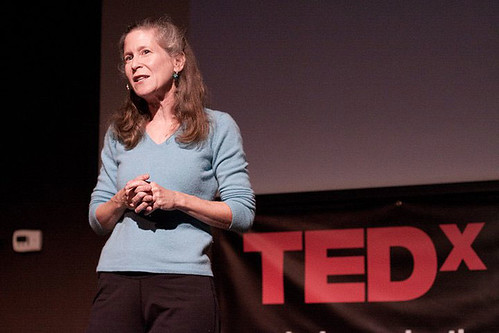
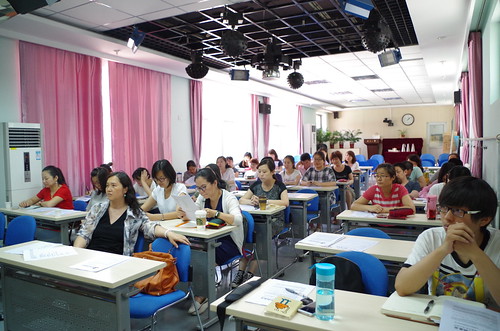
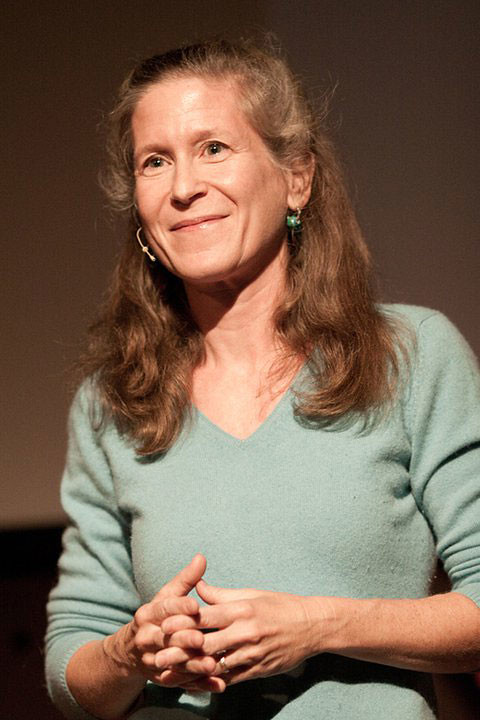




 Freedom after two decades: Moon bears Nang and Mua rescued
Freedom after two decades: Moon bears Nang and Mua rescued
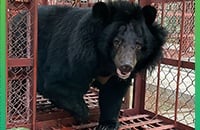 With heavy hearts we say goodbye to our beloved Tulip
With heavy hearts we say goodbye to our beloved Tulip
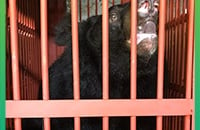 Three moon bears rescued from notorious bear bile farming hotspots in Vietnam
Three moon bears rescued from notorious bear bile farming hotspots in Vietnam